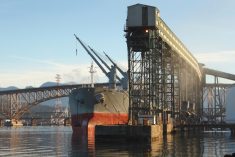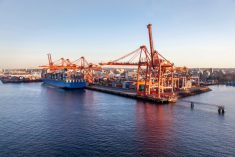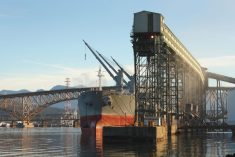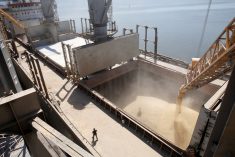Reuters — The Baltic Exchange’s main sea freight index, which tracks rates for ships carrying industrial commodities, slipped to another all-time low Tuesday on worries about vessel oversupply and slowing global demand.
The overall index, which gauges the cost of shipping dry bulk including iron ore, cement, grain, coal and fertilizer, fell four points or 1.3 per cent, to 310 points.
The index has yet to register a single session of gains this year, tumbling around 35 per cent and touching fresh lows in 20 of the 22 sessions.
Read Also

U.S. grains: Wheat futures rise on supply snags in top-exporter Russia
U.S. wheat futures closed higher on Thursday on concerns over the limited availability of supplies for export in Russia, analysts said.
A slowdown in the Chinese economy, which grew at its slowest pace in a quarter of a century in 2015, and a huge over-capacity in vessels has hit the index hard.
The capesize index rose two points or 0.9 per cent to 217 points.
Average daily earnings for capesize vessels, which typically transport 150,000-tonne cargoes such as iron ore and coal, increased by $16 to $2,822.
The panamax index was flat at 282 points, the lowest level recorded by the index on Monday.
Average daily earnings for panamaxes, which usually carry coal or grain cargoes of about 60,000 to 70,000 tonnes, was also unchanged at US$2,260.
The handysize index fell four points to 212 points, while the supramax index fell 10 points, to 289 points.
— Reporting for Reuters by Vijaykumar Vedala in Bangalore.




















